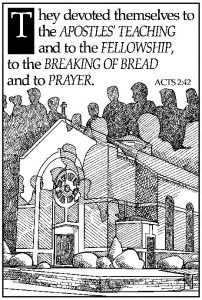Choices change our lives…
By Barbara Dahlgren

We all know that words have power. That’s why we are told to bridle our tongues (James 3:1-10). Words can bring hurt or healing (Proverbs 18:21). This not only applies to how we talk to others, but how we talk to ourselves.
We are constantly talking to ourselves through our thoughts – and most of it is not too positive. We call ourselves fat and ugly. We call ourselves stupid idiots. We tell ourselves we are worthless, unforgivable losers. We call ourselves clueless jerks.
While it’s true that we are all clueless jerks at one time or another, to dwell on it and get down on ourselves is not productive. It lingers in our subconscious and plants negative seeds of doubt. These seeds can take root in other parts of our lives and lead to destructive behavior. It can also cause depression and keep us from moving forward in the faith.
Proverbs 4:23 (GNT) tells us to “be careful how you think; your life is shaped by your thoughts.” Proverbs 23:7 tells us that “as a man thinks, so he is.” These scriptures caution us about how and what we think.
The father of General Semantics, Count Alfred Korzybski, once marveled, “Man is the only creature who can talk himself into a nervous breakdown and the only creature who can talk himself out of it.”
Consider this… We won’t always be able to block negative self-talk, but we can certainly limit how much time and consideration we give it. We can choose not to continuously entertain it. We can choose to replace it with those things God says are worthy of our time and thought.
God says to bring every thought into captivity (2 Corinthians 10:5). We are told to meditate on things that are noble, just, pure, lovely, of good report, virtuous, and praiseworthy (Philippians 4:8). Thinking we are fat and stupid does not really fall in any of these categories.
We also need to view ourselves as God views us. God doesn’t think we are worthless or He wouldn’t have died for us (John 3:16). God doesn’t think we are unforgivable because He forgives us (1 John 1:9). We repeatedly condemn ourselves, but God doesn’t (Romans 8:1-2). God doesn’t think we’re losers. Through Him we are victorious winners (1 Corinthians 15:57).
If we fill our mind with what God thinks, we won’t have room for a lot of negative self-talk.
One final thought… It’s been said that you are what you think about all day long. It that’s true, then it’s best to keep your mind on things above (Colossians 3:2).




















